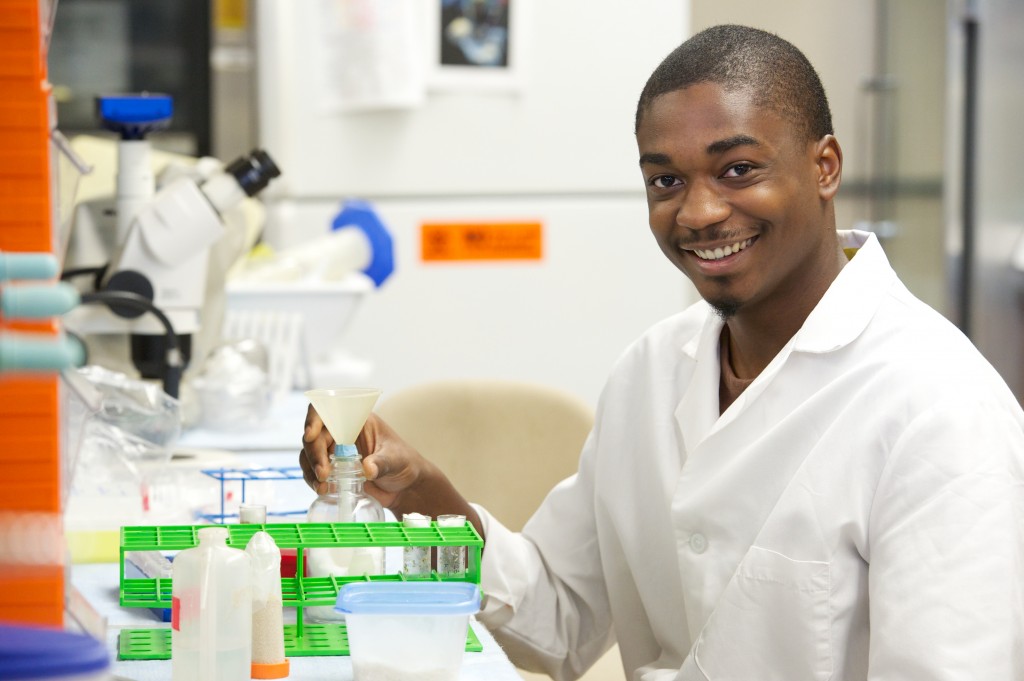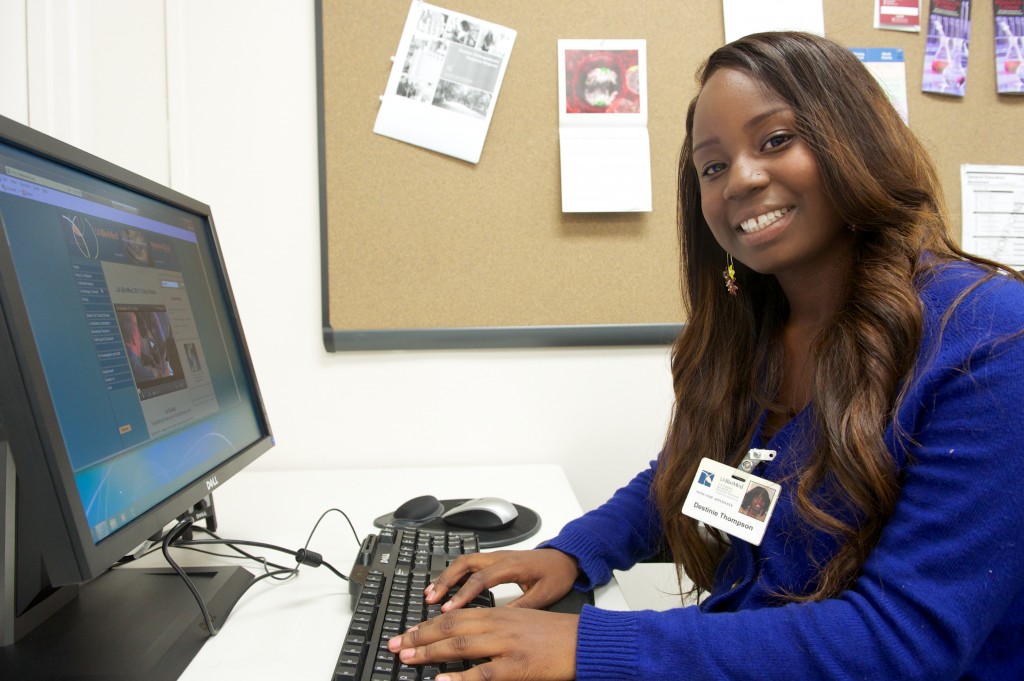Kumar Tiger, a 21-year-old senior microbiology major, aspires to be biomedical scientist because he “saw the health disparities among people like me and my family and I was not satisfied with the solutions being provided.”
He wants to play a part in finding solutions and proactively preventing sickness, and he says the experiences he has had through the National Institutes of Health (NIH) Minority Biomedical Research Support (MBRS) Research Initiative for Scientific Enhancement (RISE) program at California State University, Dominguez Hills will help him achieve his career goals.

“MBRS RISE has taught me more than just laboratory techniques,” said Tiger who has worked on projects involving genetic diseases like spina bifida, understanding proteins involved in RNA localization, and identifying how poison dart frogs obtain alkaloids to defend against predators. “It has taught me how to develop research projects and how to test my hypothesis. I also appreciated working alongside like-minded individuals who were there to help inspire me and teach me to become a leader on and off campus.”
One of the longest federally funded programs at CSU Dominguez Hills, having been in continuous operation since 1977, the MBRS program will continue to help minority students like Tiger reach their dreams thanks to another four years of funding from the National Institute of General Medical Sciences (NIGMS), part of the National Institutes of Health. NIGMS has renewed the university’s MBRS RISE grant through 2016 at a total funding cost of approximately $1.4 million.
“Needless to say, I am very happy that we received the funds,” said Laura Robles, dean of the College of Natural and Behavioral Sciences and MBRS program director. “I look forward to continued success and helping our students achieve their dreams.”
Through MBRS RISE grants, NIGMS seeks to increase the number of underrepresented students–including African American, Hispanics, Pacific Islanders and American Indians– who get advanced research degrees in the biomedical and behavioral sciences fields. Research shows that a scientific workforce that reflects the diversity of the nation is important and more effective in improving health outcomes.
MBRS programs prepare underrepresented students at the undergraduate level to be competitive and successful candidates in Ph.D. programs by supporting a number of developmental opportunities, such as conducting research and taking part in other science activities. At CSU Dominguez Hills, the MBRS RISE program pays students to work as research assistants either on campus, or at one of two partner institutions, LA BioMed or Charles Drew University of Medicine and Science. They also receive stipends for lab supplies and to attend and/or participate in conferences.
“Having opportunity at the undergraduate level to conduct research with faculty is one thing, but thanks to MBRS and our partnerships with LA BioMed and Charles Drew, we’re able expand our capacity to serve our students and give them vital experiences that will help them advance their education and careers in research,” Robles said.
MBRS RISE is open to minority students majoring in biology, chemistry, physics, psychology, or sociology who maintain a high grade point average and are at a sophomore or higher undergraduate grade level. With this most recent renewal, the program will be able to take up to 14 students–up from 10– annually through the duration of the grant.
Over the more than 30 years the MBRS program has been on campus–the current program, RISE, has been in operation at the university since 2001–hundreds of students have benefited and many have gone on to doctoral programs at such prestigious institutions as Purdue University, Brown University, Northwestern University, UCLA and USC, to name a few. Former MBRS students have even returned to teach a new generation of CSU Dominguez Hills graduates, including Begona de Velasco, a lecturer in biology, and Kenneth Rodriguez, assistant professor of chemistry/biochemistry.

Like Tiger, Destinie Thompson, a junior majoring in psychology, says MBRS RISE is helping her toward her goal of earning a Ph.D. and becoming an industrial/organizational psychologist. Through the program Thompson, 20, is currently conducting research at LABioMed involving psychiatric symptoms associated with chronic pelvic pain in Latino women, and had previously worked with faculty-mentor Karen Wilson, professor of psychology, on research focused on ethnic disparities in HIV medication adherence.
“The RISE program has brought me countless benefits, as well as strengthened my desire to excel in school,” she said. “My current mentor is supportive of my future goals and encourages me to actively pursue my dreams.”
For more information about MBRS RISE at CSU Dominguez Hills, contact program manager Tigress Briggs-Wroten at (310) 243-3392 or tbriggs@csudh.edu.